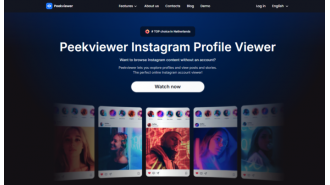Apple commits to improved AI privacy, highlighting the need for the tech industry to address our privacy concerns.
Is sacrificing privacy for AI features worth it? Is this a much-needed discussion?

In today's fast-paced world of technology, there is a constant desire for new and innovative features that can make our lives easier. With the rise of Artificial Intelligence (AI), companies are now able to offer groundbreaking features that were once unimaginable. But as we eagerly embrace these advancements, we must also consider the trade-off: our data privacy. Is it worth sacrificing our privacy for the incredible features that AI offers? This is a conversation that has been long overdue.
As Apple gears up to launch its AI software on iPhones, one question looms over us: who has access to our data? It's a concern that most people have never even thought about. We have no idea if AI companies can see our private conversations, save our personal documents, or even put us at risk for cyber attacks. While many tech companies have chosen to ignore these concerns, Apple is taking a different approach. With their new "Apple Intelligence" features, they promise to balance the power of AI with strict privacy standards.
Announced in June, Apple's AI technology will process data on your device whenever possible. When more power is needed, it will tap into a "Private Cloud Compute" without compromising your privacy. In an exclusive interview with 9News.com.au, Apple's Senior Vice President of Software Engineering, Craig Federighi, shed some light on the privacy concerns surrounding AI. He acknowledged that there are "significant concerns among many people who are new to AI about what it means for their privacy" and added, "many people have things that could be really useful that they'd like to do with AI that they're kind of afraid to do today."
Apple's approach to AI is unique and potentially game-changing. It sets a higher standard for privacy than any other AI service we've seen thus far. One of the key reasons for this is their "No privileged runtime access" policy. This means that there is no super user or trusted employee with access to the backend of the system. While this person may be trustworthy now, there's no guarantee that they will always be. This could potentially lead to a breach of private information. After all, it's our personal data that AI may have access to – our files, emails, and even text messages.
With so much sensitive information at stake, it's only natural for users to feel uneasy about where their data is going and how it's being used. This is precisely the concern that Apple is addressing with their AI features. As Federighi explains, many people today "paste that personal content into a webpage field and wonder what's happening with this data." It's clear that Apple has not rushed into their "Apple Intelligence" concept without consulting users. Federighi stated, "when we've talked to average people about it, one of their top concerns has been about how is my data used? Is this private?"
Apple is famous for many things: Steve Jobs, the Mac, the iPod, and of course, the iPhone. But they are also known for their strong stance on privacy. As they venture into the world of AI with Apple Intelligence, they are determined to maintain the same level of privacy that users have come to expect from them. Federighi emphasizes that it was important for Apple to release their AI technology in an "Apple way" and meet the high standards that users expect from them. He adds, "they can feel comfortable taking advantage of the power of this intelligence without compromising their privacy."
Apple's AI features are highly personalized, offering shortcuts and summaries that utilize your calendar, email, messages, and notifications. While these features are incredibly useful, they may also raise concerns about privacy. This is why Apple is taking a proactive approach and getting ahead of the issue. Federighi says, "we wanted to get the message out that our devices are powerful enough to process a lot of the Apple Intelligence features on the actual device, but there will always be some requests that are too complex and require us to turn to our 'Private Cloud Compute' model."
Federighi is confident that Apple's existing privacy stance sets the benchmark for the industry. He says, "data that's exclusively in your control. That's the gold standard." While the iPhone 16 is powerful enough to run many AI models on the device itself, there will be times when it needs to turn to the cloud. Federighi explains, "when it comes to some of these generative models, sometimes you want to access something that's even more powerful than what we can run on device today. And so for that, we need to draw on the cloud. But as we approach the cloud, we did not want to give up any of the privacy protections that our users have come to understand."
This brings us back to the core issue: how can we trust the cloud? To ensure the highest level of privacy and security, Apple has built its own cloud infrastructure and software. They have also implemented core principles that are unmatched by any other AI or cloud system. For one, there is absolute anonymity of data, meaning that there is no record of previous requests and no trace left in the system. There is also no workaround or privileged access to the files, ensuring that no Apple employee has an override key to the system. And finally, the system is designed in such a way that if someone did attempt to hack into the data, they would have to hack the entire system.
To add to their credibility, Apple is welcoming third-party independent security researchers to test their systems at any time. In fact, they have stated that "security researchers must be able to verify the security and privacy guarantees of Private Cloud Compute, and they must be able to verify that the software that's running in the PCC production environment is the same as the software they inspected when verifying the guarantees." As Federighi aptly puts it, "not everyone reads legalese in company disclosures, but there's some people out there who, thankfully, read them very closely and hold up companies who are not doing the right thing."
The big question now is whether people will trust Apple Intelligence and, more importantly, if other AI-based systems and organizations will be willing to commit to the same level of privacy and security. Apple has undoubtedly met its goal and set the gold standard for AI in the cloud. It remains to be seen if the rest of the tech industry can live up to these standards. Apple Intelligence will launch later this year on iPhone 15 Pro models and all iPhone 16 models.










